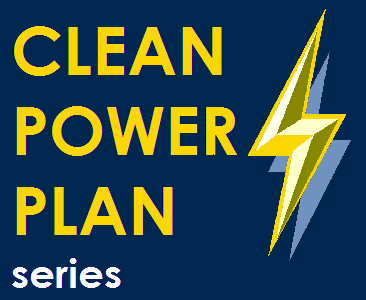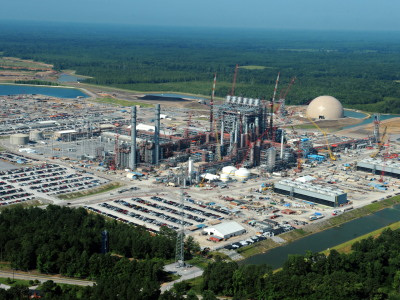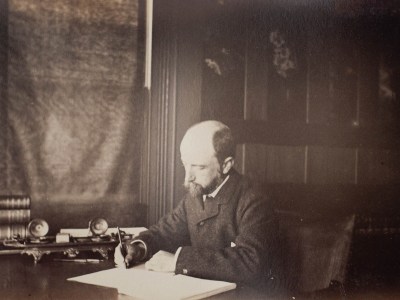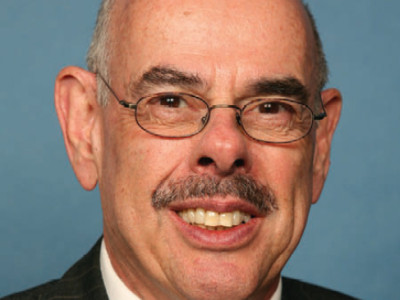Greenhouse gas emissions
Creating An Exit Strategy for Our Use of Natural Gas
To meet long-term greenhouse gas reduction goals, all fossil fuels have to go, even natural gas.
Coal is the climate’s Public Enemy #1. The use of natural gas has helped to ensure that the coal problem has not become even worse. Without natural gas, we would use more coal for space heating and for many more industrial processes than is currently the practice. Without natural gas, our reliance on coal for …
Continue reading “Creating An Exit Strategy for Our Use of Natural Gas”
CONTINUE READINGClean Power Plan Litigation Kick-Off
Flood of lawsuits follows publication of EPA rules to regulate power-plant GHGs
*Updated: Nov. 17, 2015* On Friday, October 23, 2015, the Federal Register formally published EPA’s rules to control greenhouse-gas emissions from fossil-fuel-fired power plants under the Clean Air Act. I described the basics of the rules after EPA released the unofficial text in August. The final text of the rule to regulate new and modified …
Continue reading “Clean Power Plan Litigation Kick-Off”
CONTINUE READINGIs Carbon Capture & Sequestration (CCS) the Biggest Threat to the Clean Power Plan?
Exploring potential challenges to EPA’s New Source Performance Standard: PART I
This post is the first in a mini-series exploring likely legal challenges to EPA’s New Source Performance Standard (NSPS) for power-plant greenhouse gas emissions under Clean Air Act § 111(b), and how those challenges might affect the Clean Power Plan. I will leave detailed exploration of the Clean Power Plan for later posts, but suffice …
CONTINUE READINGAustralia’s repeal of its carbon tax
A lot of (bad) environmental law news has been coming out of Australia recently. The new Liberal government has attempted to dump dredging spoils on the Great Barrier Reef and open up protected Tasmanian forests to logging. But most importantly, the government has repealed the carbon tax enacted by the prior Labor government. The Australian …
Continue reading “Australia’s repeal of its carbon tax”
CONTINUE READINGA Roadmap for State Comments on the Clean Power Plan
Considerations for State Regulators Tackling EPA’s §111(d) Proposed Rule
Yesterday, EPA announced its decision to extend the comment period on the Clean Power Plan—the agency’s proposed rule to regulate power plant greenhouse gas (GHG) emissions under Clean Air Act § 111(d)—until December 1, 2014. The comment period was originally scheduled to last 120 days, until October 16th. You can find a list of compiled …
Continue reading “A Roadmap for State Comments on the Clean Power Plan”
CONTINUE READINGCongressman Waxman Tells FERC: Read UC Berkeley’s Climate Change Study
Henry Waxman urges FERC to act on greenhouse gas emissions.
In a Congressional hearing this morning, Congressman Henry Waxman had a rare chance to face all five sitting members of the Federal Energy Regulatory Commission (FERC) at the same time to talk about climate change. He took the opportunity to point out UC Berkeley’s recent report on FERC’s authority under existing law to reduce greenhouse …
Continue reading “Congressman Waxman Tells FERC: Read UC Berkeley’s Climate Change Study”
CONTINUE READINGGeneral Permits and the Regulation of Greenhouse Gases
The Supreme Court ignored a major option for effective regulation
Author’s Note: The following post is co-authored by Eric Biber and J.B. Ruhl, the David Daniels Allen Distinguished Chair of Law and the Co-Director of the Energy, Environment, and Land Use Program at Vanderbilt Law School. It is also cross-posted at Reg Blog. Reg Blog, supported by the U Penn Program on Regulation is an …
Continue reading “General Permits and the Regulation of Greenhouse Gases”
CONTINUE READINGHow Scalia Might Have Ended the Best Hope of Killing EPA’s Greenhouse Gas Rules
The Supreme Court may have just eliminated a major legal and political risk to EPA’s greenhouse gas regulatory program
A couple of folks have already written about the UARG decision, and there is surely more to understand about the implications of the Scalia majority decision for future EPA greenhouse gas regulatory efforts. But I want to highlight one key implication of the decision for EPA’s overall greenhouse gas regulatory program. First, it is important …
Continue reading “How Scalia Might Have Ended the Best Hope of Killing EPA’s Greenhouse Gas Rules”
CONTINUE READINGBreaking News: U.S. Supreme Court Renders Split Decision in Major Climate Change Case
The U.S. Supreme Court today issued its long-awaited decision in Utility Air Regulatory Group v. Environmental Protection Agency, the justices’ third encounter with climate change law and policy. In a Solomonic ruling, the Court ruled that EPA lacks authority to require the operators of “stationary sources” of greenhouse gas emissions (power plants, factories, etc.) to obtain …
CONTINUE READINGThe 2014 Midterm Elections and the EPA Greenhouse Gas Rule
Why Republicans probably won’t be able to eliminate the EPA rules before 2016
I wrote earlier about why the 2016 Presidential election will be the election that matters (politically) for the long-term success of the new greenhouse gas rules proposed by EPA. (The status of legal challenges is a different question.) I want to elaborate a little more now about why the 2014 midterm elections are pretty much …
Continue reading “The 2014 Midterm Elections and the EPA Greenhouse Gas Rule”
CONTINUE READING








